In my first column of 2020, I shared optimistic social media posts from several independent booksellers looking forward to the new year, ending with a succinct line from Next Page Books, Cedar Rapids, Iowa: "2020. It's gonna be big." A lot of us felt that way, even as late as the end of January when we gathered in Baltimore for Wi15.
Cue the Covid-19 pandemic plot twist.
It's the nature of social media to offer snapshots, but this week I decided to paste a few of them in a virtual album to get a sense of how the business-not-as-usual timeline has unfolded over the past few months. Since Next Page Books and owner Bart Carithers provided my opening headline for 2020, I returned to his store's Facebook page for perspective. Here's a glimpse:
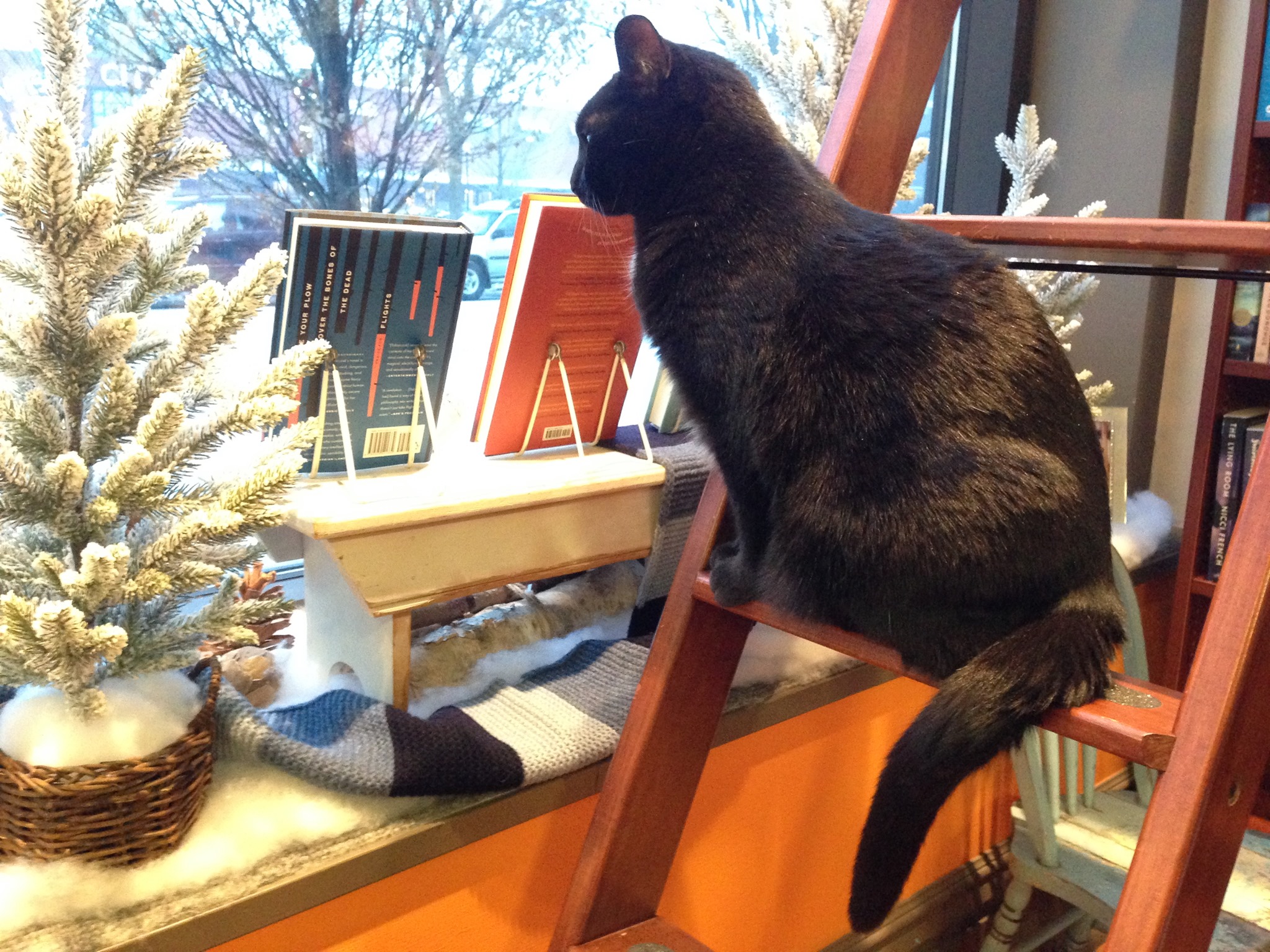 |
| In January, bookshop cat Frank was still "on the lookout for customers, dogs, and birds, but not necessarily in that order." |
March 5: "Happy begins here."
March 16: "The coronavirus (Covid-19) is creating unexpected challenges for all of us, and we understand folks' uncertainty about what may happen in the days and weeks ahead.... We plan to remain open until such time businesses are asked or required to close temporarily.... At times like these it's doubly important to support all small, locally owned businesses. We encourage everyone to help raise awareness about the critical need to shop and eat local. As a community, we'll weather the storm and come out on the other side stronger and more resilient than ever. Be safe and remain positive."
March 18: "Out of an abundance of caution, the store will close at 4 p.m. Sunday, March 22 and remain closed through Wednesday, April 15.... Owning this bookstore has fulfilled a life-long dream. I sincerely appreciate everyone who has supported me and the store over the past four years. I hope I can continue to rely on your support should the store be able to reopen when this crisis has ended. In the meantime, be healthy, happy, and safe. As I tell the books each night at closing, 'I love you all.' "
March 23: "Our first curbside pickup! We have officially entered a new age."
March 27: "The outpouring of support you have shown the store these past few weeks has been humbling and I'm not sure how to adequately repay you for your kindness. Please know that I am sincerely grateful. For now, be safe and stay healthy. We'll get through this!"
April 7: "A benefit of being a bookstore delivery guy. Seriously, I may have found my calling."
 April 10: "The masked man rides again bringing books to a neighborhood near you! Hi-Ho Silver (Honda), away!"
April 10: "The masked man rides again bringing books to a neighborhood near you! Hi-Ho Silver (Honda), away!"
April 16: "Our transition from being a cozy walk-in bookstore with over the counter sales to one that only takes orders online or on the phone has been awkward, at best, but we've managed to make it work. Thank you, friends, for your patience as we muddle through this new way of doing business."
April 27: "Well, this turned out better than expected."
May 2: "Our lifeline. Thanks FedEx, UPS, and USPS for keeping everything moving. We couldn't stay in business without you!"
May 7: "Uh-oh, you may want to coax me off my soapbox. The governor declared retail businesses may reopen at 50% capacity effective Friday, May 8. Next Page Books will reopen once it appears safe and prudent to do so. The decision will be based on advice from health care professionals, not politicians."
May 13: "No one can predict the future but we're hoping for the best. Thanks, everyone, for sticking with us. On our corner of the world, it's a marathon and not a race to reopen."
 May 15: "Oh, we get by with a little help from our friends. Thanks to Heidi Ipsan, owner of The DAISY--crazy daisy in Czech Village, we'll have an awesome countertop screen for when we eventually reopen. While you can't tell from the photo, there is a sheet of plexiglass in the frame. Really."
May 15: "Oh, we get by with a little help from our friends. Thanks to Heidi Ipsan, owner of The DAISY--crazy daisy in Czech Village, we'll have an awesome countertop screen for when we eventually reopen. While you can't tell from the photo, there is a sheet of plexiglass in the frame. Really."
May 30: "My memoir will be titled Treading Water and the cover will look something like this, only better."
June 12: "Nope. Not going to do it. Not yet. Despite the governor's decree allowing retail stores to fully reopen, for the time-being we will remain closed to walk-in traffic."
June 23: "I've made the decision to reopen the store on Friday, June 26 after being closed to walk-in traffic for three full months. This was not an easy decision to make. Please rest assured that every precaution necessary will be taken to ensure the store remains a safe and healthy space to shop."
June 25: "If we learned anything during the 'pandemic closure' it was that a small business like ours had to evolve in order to survive. We adapted rather quickly and, thanks to all of you, managed to stay in business.... You kept this little shop afloat and I am forever in your debt. I love our customers, and I love this town!"
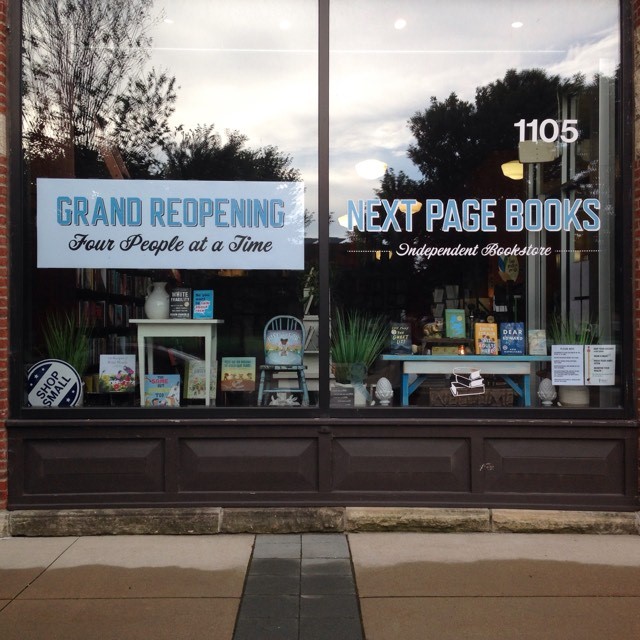 June 26: "Here we go!"
June 26: "Here we go!"
June 30: "It's the right thing to do."
July 20: "The dream is still alive!"
July 24: "We promised to increase inventory and, boy oh boy, did we deliver. And more books are on the way!"
July 25: "This is how it's done at Next Page Books and our customers make it look so easy."
August 1: "Let's go!"






SHELFAWARENESS.0213.S4.DIFFICULTTOPICSWEBINAR.gif)



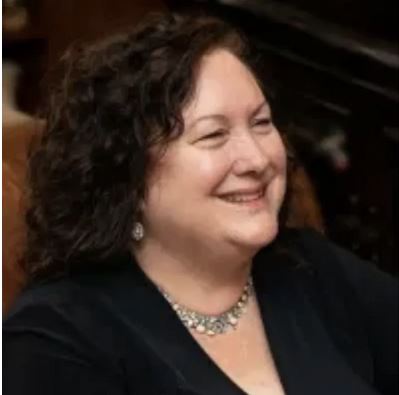


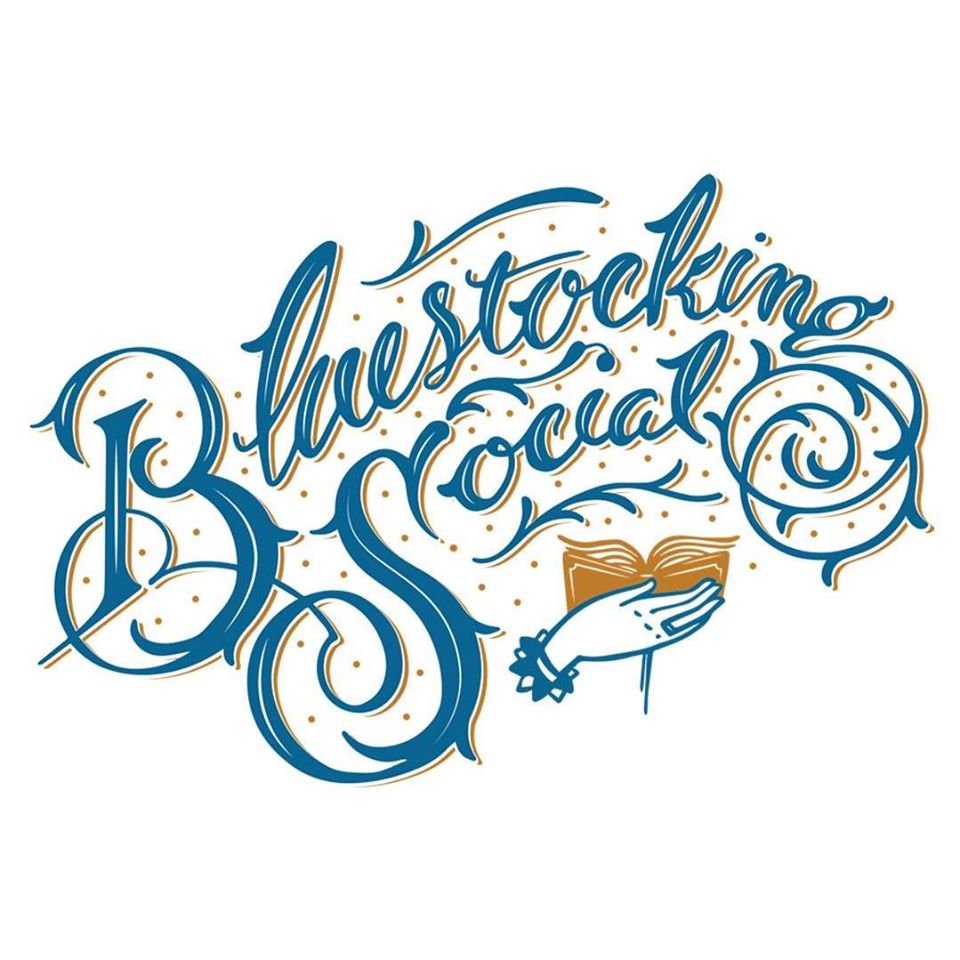

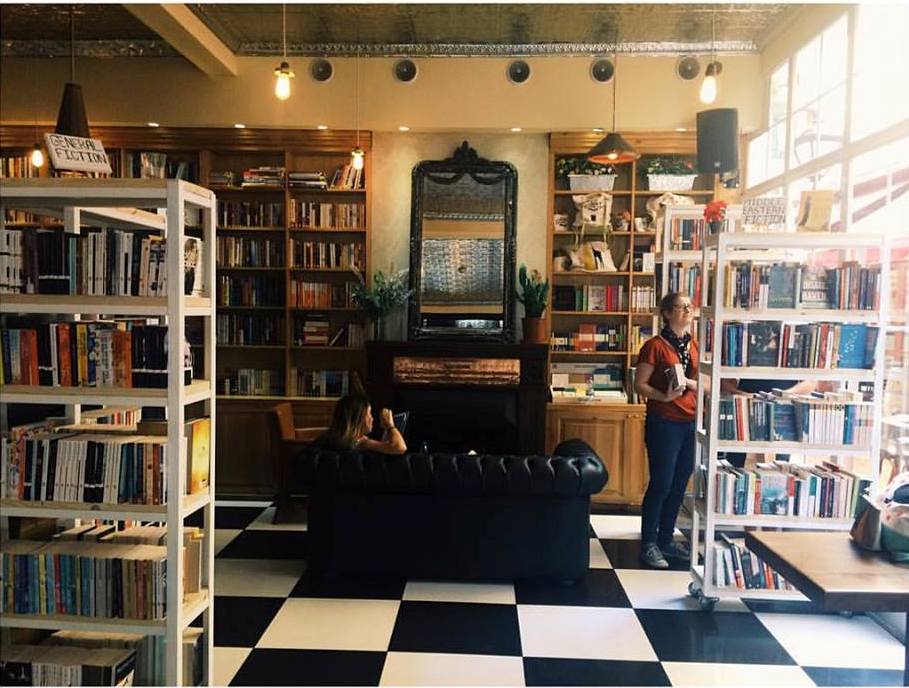 Niamh Fleming-Farrell, an Irish woman who runs
Niamh Fleming-Farrell, an Irish woman who runs 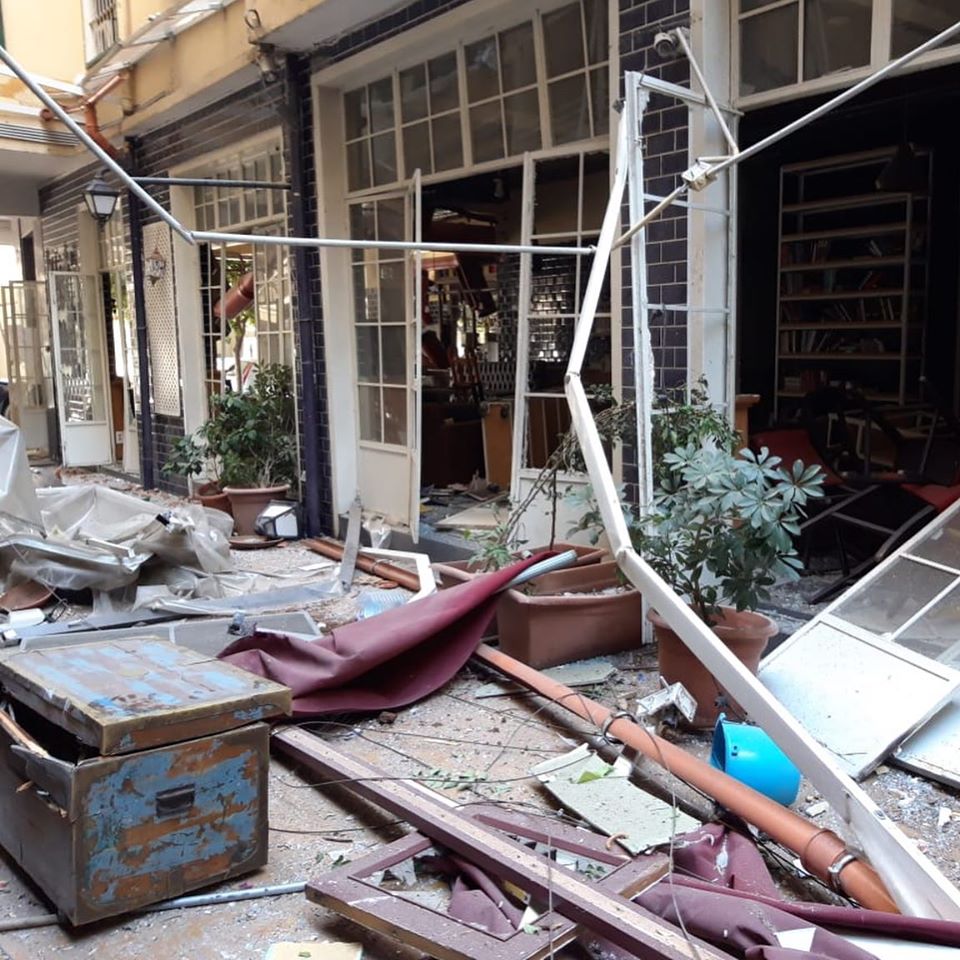
SHELFAWARENESS.0213.T3.DIFFICULTTOPICSWEBINAR.gif)
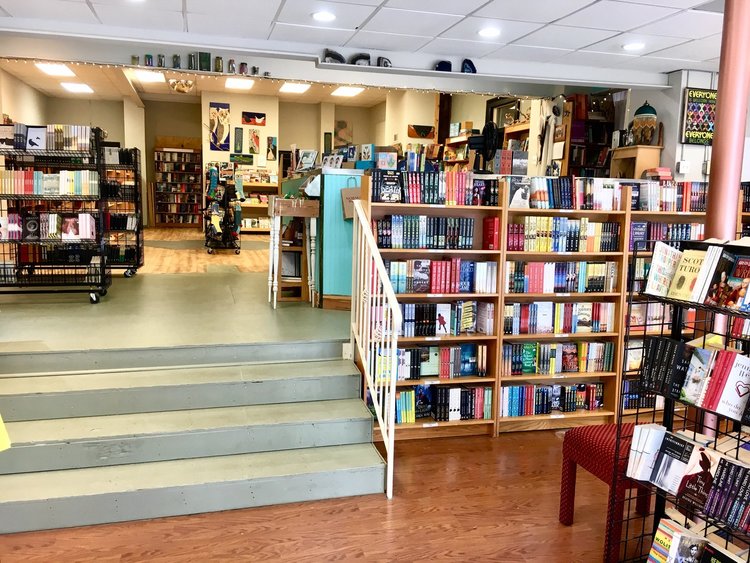
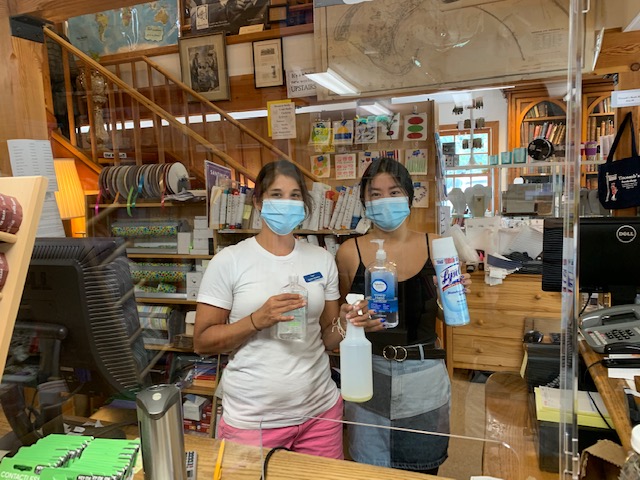 In East Sandwich, Mass.,
In East Sandwich, Mass., 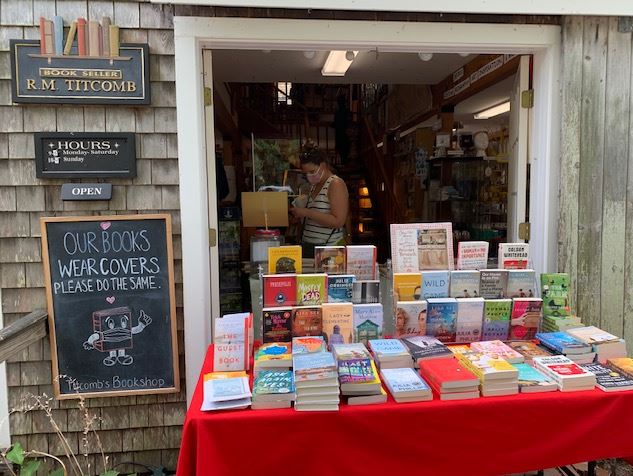 Titcomb noted that her store can feel like a maze, so allowing for social distancing has been a bit tricky. Speers and the bookstore team have removed the display tables around the front desk and, when the weather cooperates, they open the French doors at the front of the store to increase air circulation. The staff has set up tables with bestselling books under a tent outside the store, so customers can start browsing before they enter or have something to do while waiting for other customers to leave. Titcomb said she's experienced no difficulties with shoppers refusing to wear masks, whether they be locals or tourists.
Titcomb noted that her store can feel like a maze, so allowing for social distancing has been a bit tricky. Speers and the bookstore team have removed the display tables around the front desk and, when the weather cooperates, they open the French doors at the front of the store to increase air circulation. The staff has set up tables with bestselling books under a tent outside the store, so customers can start browsing before they enter or have something to do while waiting for other customers to leave. Titcomb said she's experienced no difficulties with shoppers refusing to wear masks, whether they be locals or tourists.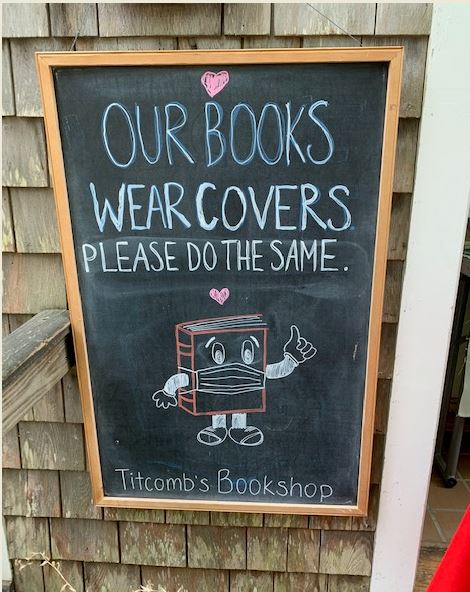 One challenging aspect of the reopening, she said, is that the majority of her senior staff have not returned to working in-store due to health concerns. She added that like all booksellers that have managed to stay in business during the pandemic, she and her team "have been working to the point of exhaustion to turn our business on a dime" from a traditional browsing and handselling experience to an online business to a mixture of the two.
One challenging aspect of the reopening, she said, is that the majority of her senior staff have not returned to working in-store due to health concerns. She added that like all booksellers that have managed to stay in business during the pandemic, she and her team "have been working to the point of exhaustion to turn our business on a dime" from a traditional browsing and handselling experience to an online business to a mixture of the two.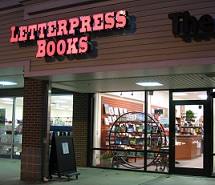 Karen Bakshoian, owner of
Karen Bakshoian, owner of 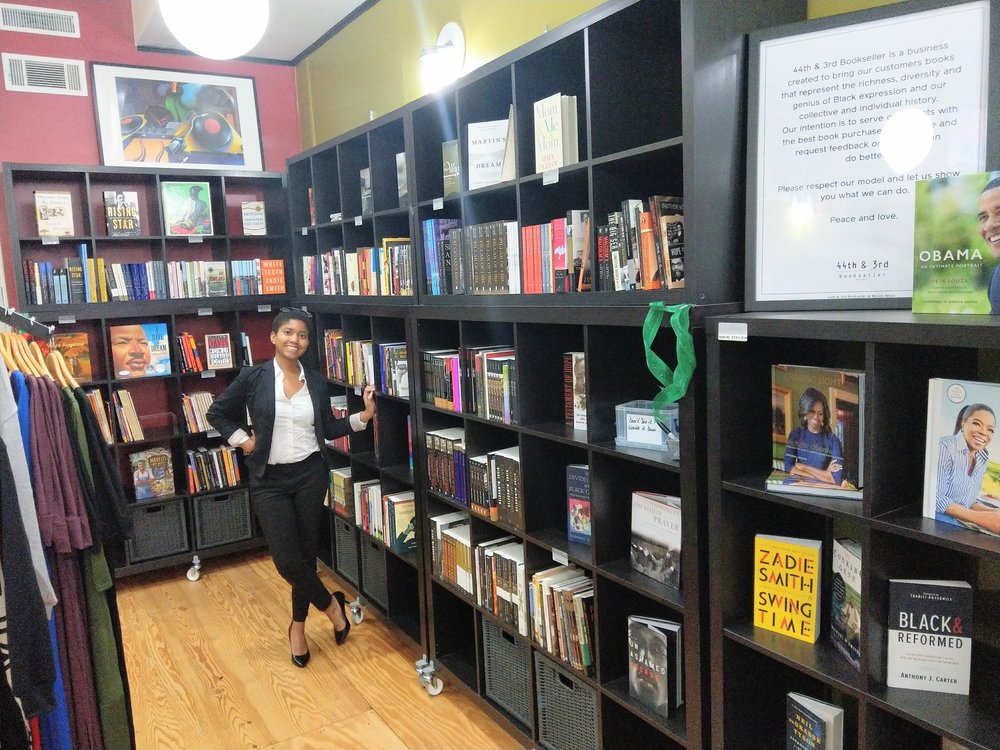
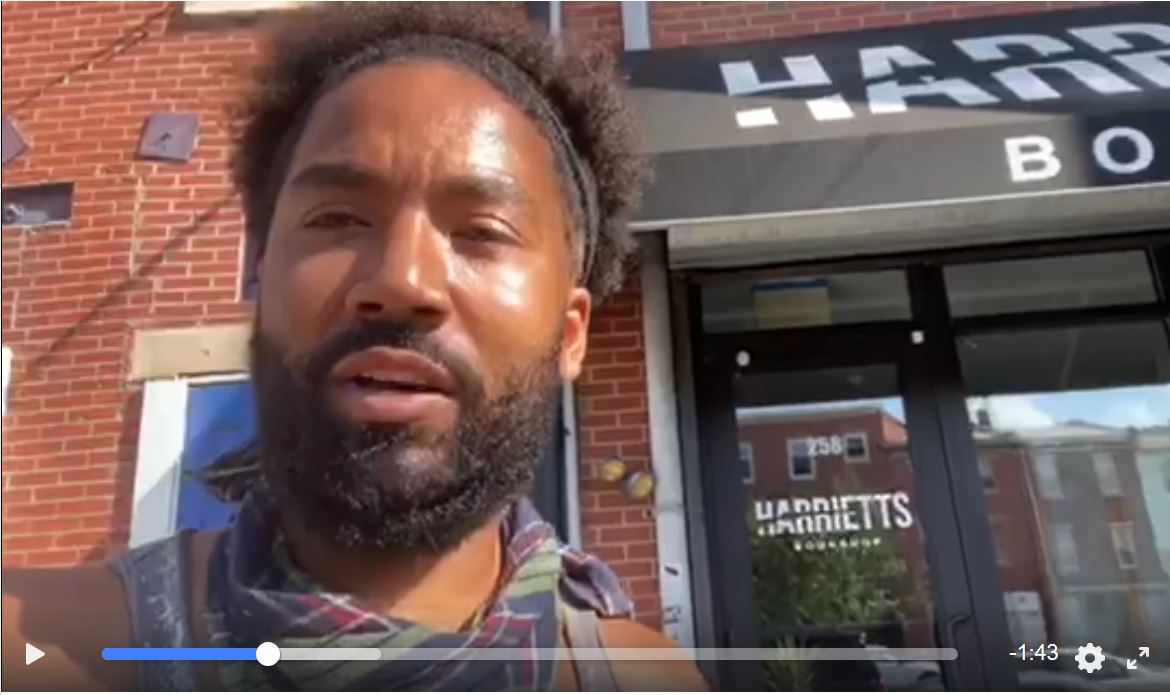
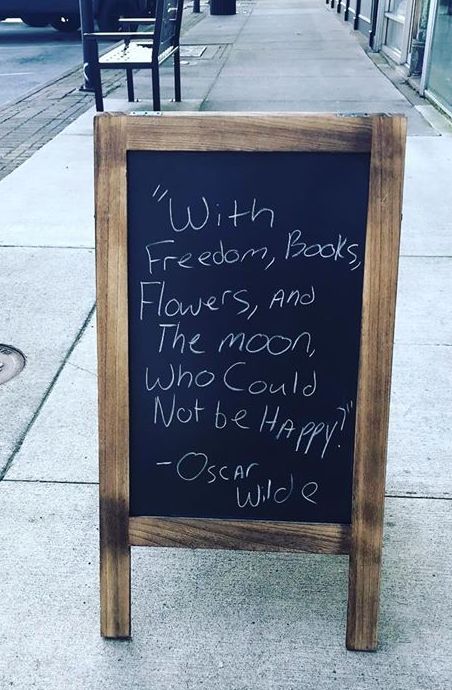 "I have the worst handwriting but
"I have the worst handwriting but 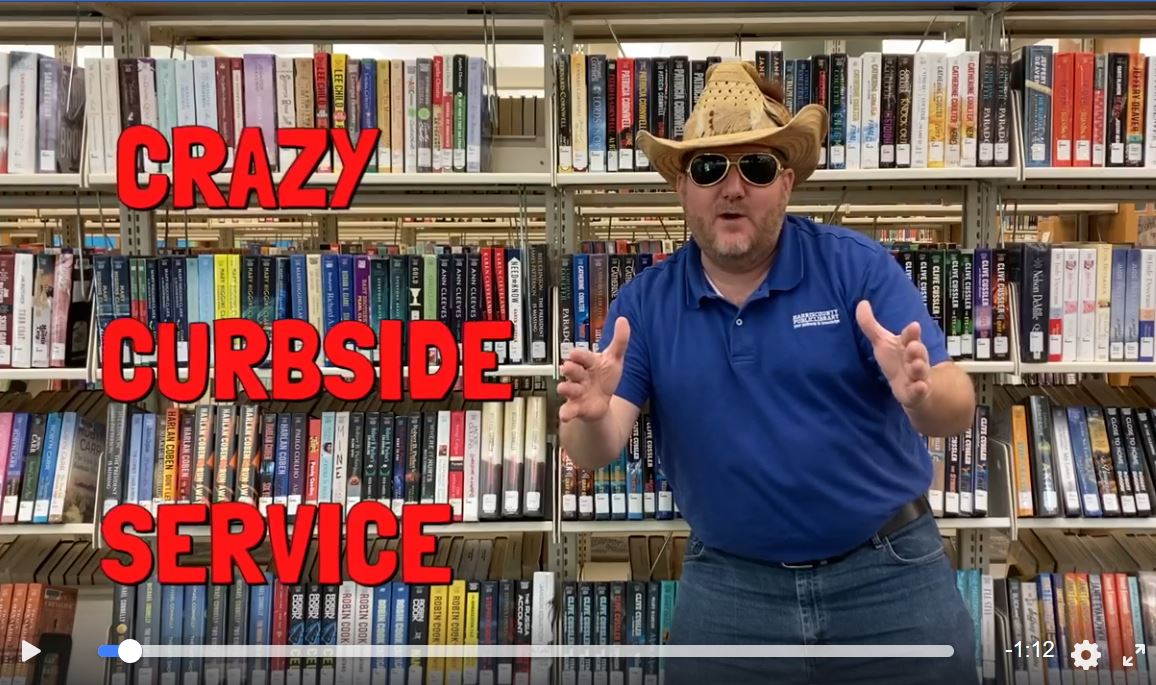
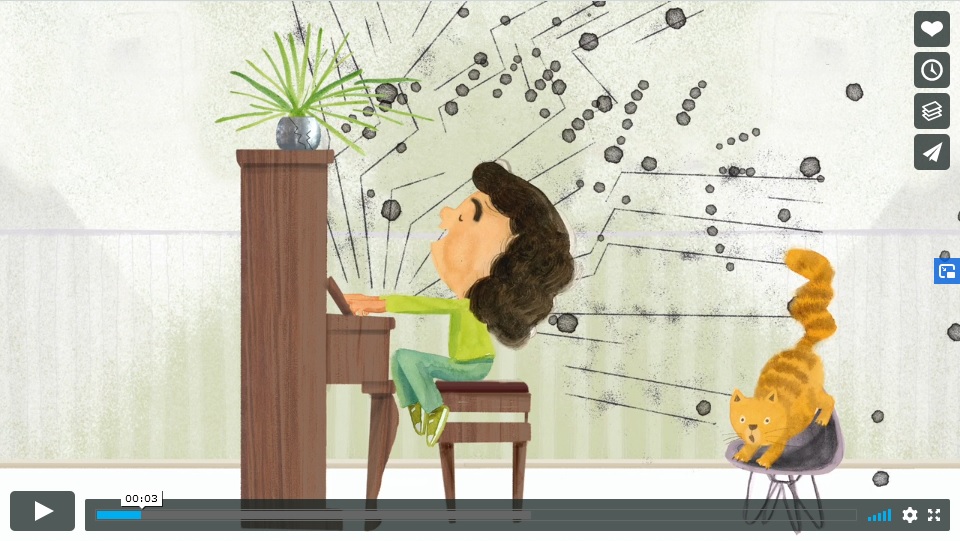 Extraordinary Ordinary Ella
Extraordinary Ordinary Ella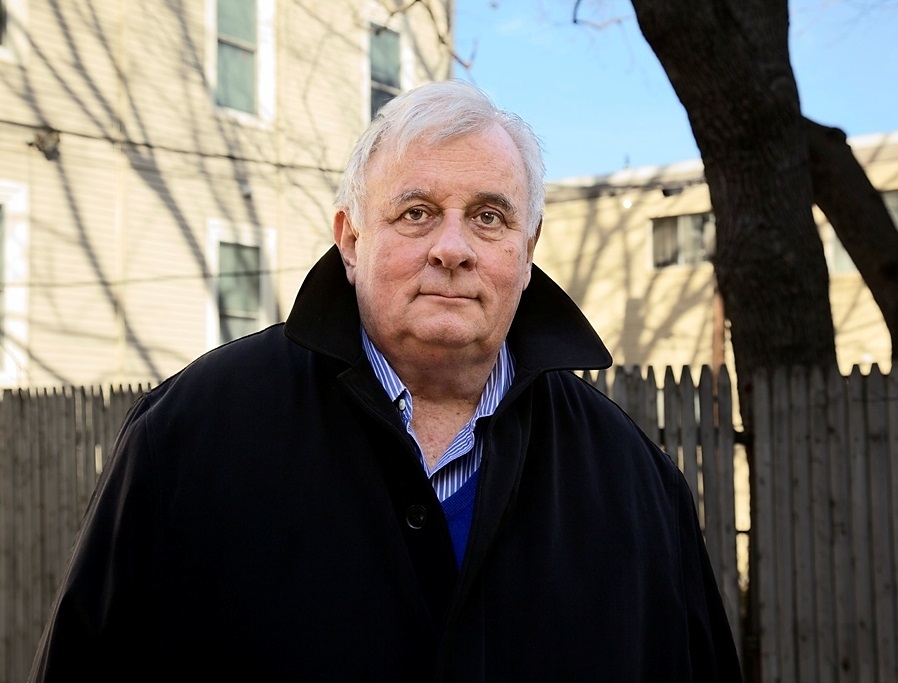
.jpg) Book you're an evangelist for:
Book you're an evangelist for: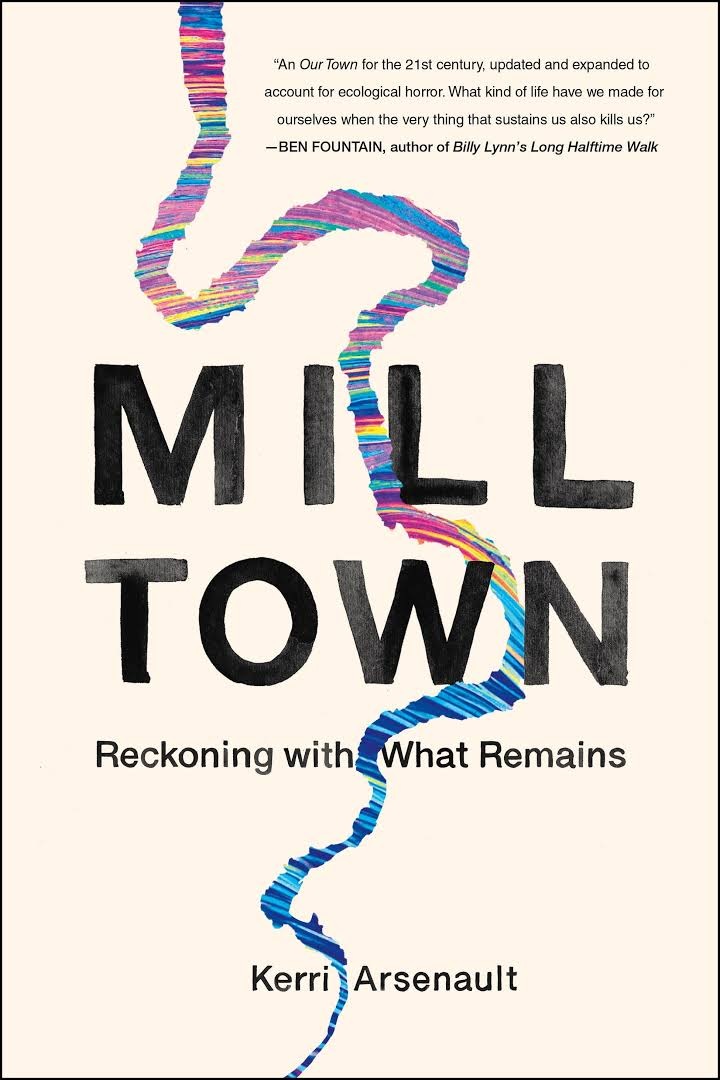 The tiny town of Mexico, Maine, is one only a native could love. But for all the affection she expresses for her roots there, critic Kerri Arsenault writes anything but a love letter in Mill Town: Reckoning with What Remains. Instead, in an imposing work of narrative nonfiction that blends memoir with ecological exposé and socioeconomic analysis, she painstakingly, and often painfully, lays bare the tragedy that has stalked the town's hardworking and plucky, but ultimately exploited, citizens.
The tiny town of Mexico, Maine, is one only a native could love. But for all the affection she expresses for her roots there, critic Kerri Arsenault writes anything but a love letter in Mill Town: Reckoning with What Remains. Instead, in an imposing work of narrative nonfiction that blends memoir with ecological exposé and socioeconomic analysis, she painstakingly, and often painfully, lays bare the tragedy that has stalked the town's hardworking and plucky, but ultimately exploited, citizens.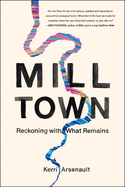

 April 10
April 10
